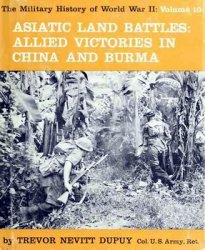The 20th century brought more chaos to former Inca territory. Peru’s quest for democracy waned as a string of dictators took over the government. Between 1968 and 1980, Peru came under control of a military junta. While
It was not democratically elected, the military regime did carry out extensive land reform. Radical groups arose, such as Shining Path (Sendero Lu-minoso) and the Tupac Amaru Revolutionary Movement, that waged guerrilla warfare against the military government. When representative government was restored, these groups targeted the democratically elected regimes of Fernando Belaunde, Alan Garcia, and Alberto Fujimori (a descendant of Japanese immigrants) with brutal attacks that have had far-reaching negative consequences for the civilian population, especially in rural areas.
Modern Bolivian politics consists of a series of wars and military coups. The country embarked on a war with Paraguay in the 1930s that lost territory for Bolivia. A radical miner’s political faction, the National Revolutionary Movement, seized power in 1943 and again in 1952. While attempts to reform mining and land use failed, the Bolivian people demanded change. In 1964, guerrilla leader Ernesto “Che” Guevara (19281967) led a military coup to overthrow the government. Guevara was a communist who fostered a people’s revolution in Bolivia. Communism did not produce positive results in Bolivia, and Guevara was killed in a Bolivian jungle in 1967. Guevara’s government was followed by a series of oppressive military governments.
Ecuador’s politics over the past century mirrored the military coups and dictatorships of its neighbors. Radical student groups rioted in the streets in 1987, the economy failed, and yet, new military dictators replaced the old ones-and nothing changed. Continued political unrest, particularly among indigenous peoples, forced the removal of the most recent presi-dent-Jamil Mahaud-in 2000. Mahaud’s successor faces continued economic problems.
Colombia’s government remains filled with corruption and undermined by powerful drug lords who dominate the country, its military, and its police. During the 1980s, political murders became daily events as drug cartels funded rebel guerrilla factions and highly paid assassins. In the 1990s, radical military groups, such as the Revolutionary Armed Forces of Colombia (FARC) and the National Liberation Army (ELN), terrorized the country, blew up oil pipelines, and kidnapped wealthy businessmen.
Chile’s population fared no better in their political leaders. Socialist leader Salvador Allende (1908-1973) the elected president of Chile in the 1970s, tried to establish land reform and nationalize industries. A military coup, backed by the United States, ousted Allende, and General Augusto Pinochet (b.1915) took over. Unemployment rose under Pinochet, as did

Where the Empire Stood
The countries that span the Andes Mountain's today were all once under the influence of the Inca Empire.
Union strikes and human rights atrocities. Government police arrested and killed many of the opposition’s leaders. Chilean voters insisted on a presidential election in 1989. Pinochet agreed and lost. He remained at the head of Chile’s army until 1998.




 World History
World History









